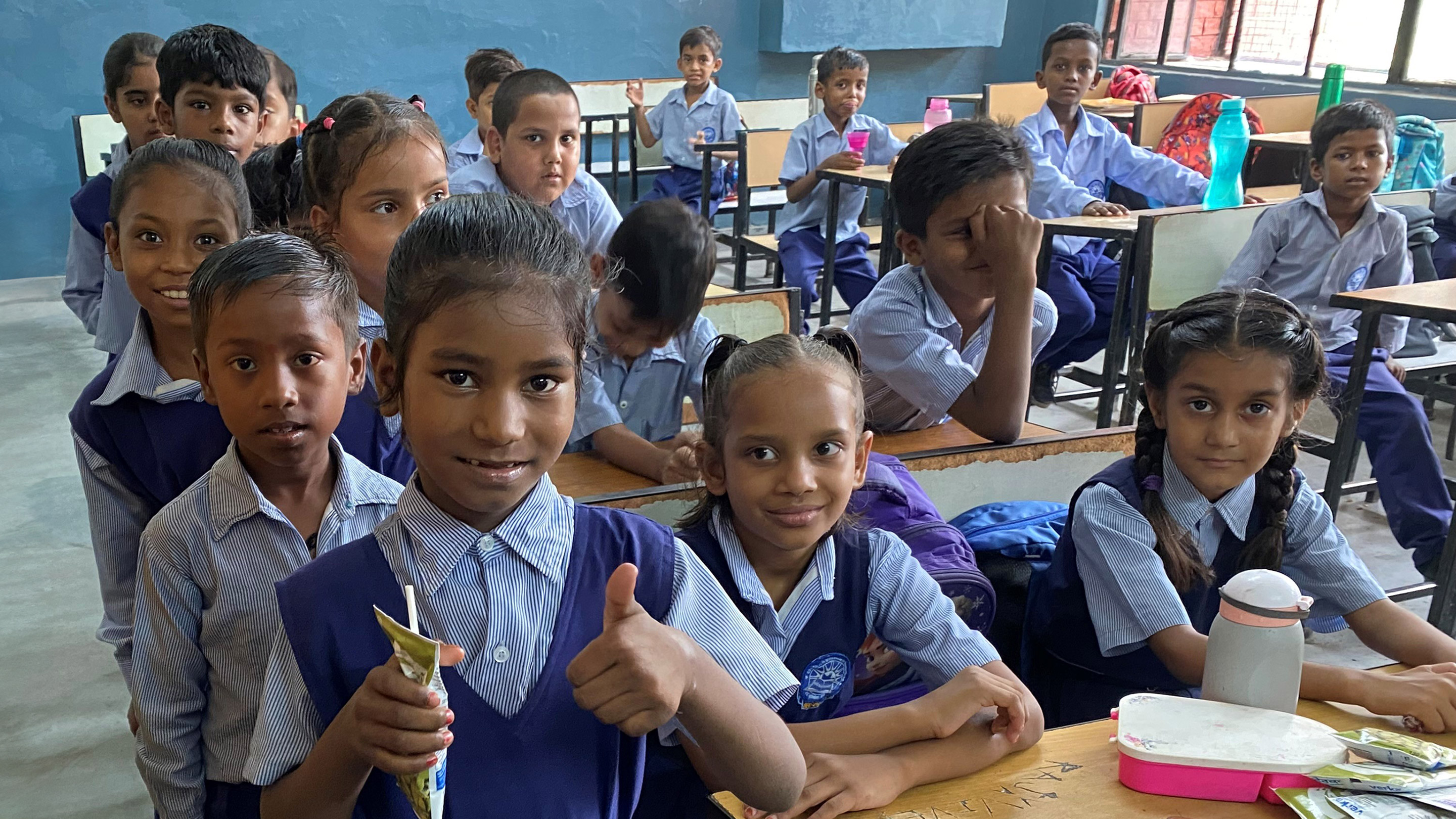Dairy value chain collaboration tackles child malnutrition in India
A new school milk programme has been initiated in Chandigarh, northern India, with milk supplied in Tetra Pak packages.

Chandigarh has among the highest proportion of undernutrition among children below the age of five in the region, with around 27% suffering from stunting (low height for age).1
Collaborating on child nutrition
To provide supplementary nutrition to children in schools, the school education department introduced the distribution of UHT milk from local dairy processor Verka Dairy in Tetra Fino® Aseptic 130 ml cartons. An initial trial involving 100,000 school-children at 118 government schools in Chandigarh has been extended for one year to include more schools.
Tetra Pak supports Verka Dairy with a Dairy Hub project by providing technical assistance and support to smallholder farmers to increase their productivity. The initiative also improves market access for farmers.
“We are proud to collaborate with Verka Dairy and the local government to address child malnutrition in Chandigarh. By providing safe and nutritious UHT milk through our school milk programme, we aim to support the health and development of children, ensuring they have the opportunity to thrive,” said Cassio Simões, Managing Director at Tetra Pak, South Asia Markets. “This initiative nourishes young minds, and also instils a sense of environmental responsibility among students. Together, we are making a meaningful impact on the lives of many, and we are proud to uphold our commitment to protecting what’s good – food, people, and the planet.”
Cartons recycled into school furniture
The programme also promote environmental responsibility among students by encouraging them to deposit their empty cartons at recycling stations at participating schools. The cartons are collected and recycled into benches, desks and stationery to be used in the schools.
1 According to the Poshan tracker submitted to India’s Parliament in 2024 by the Ministry of Women and Child Welfare.